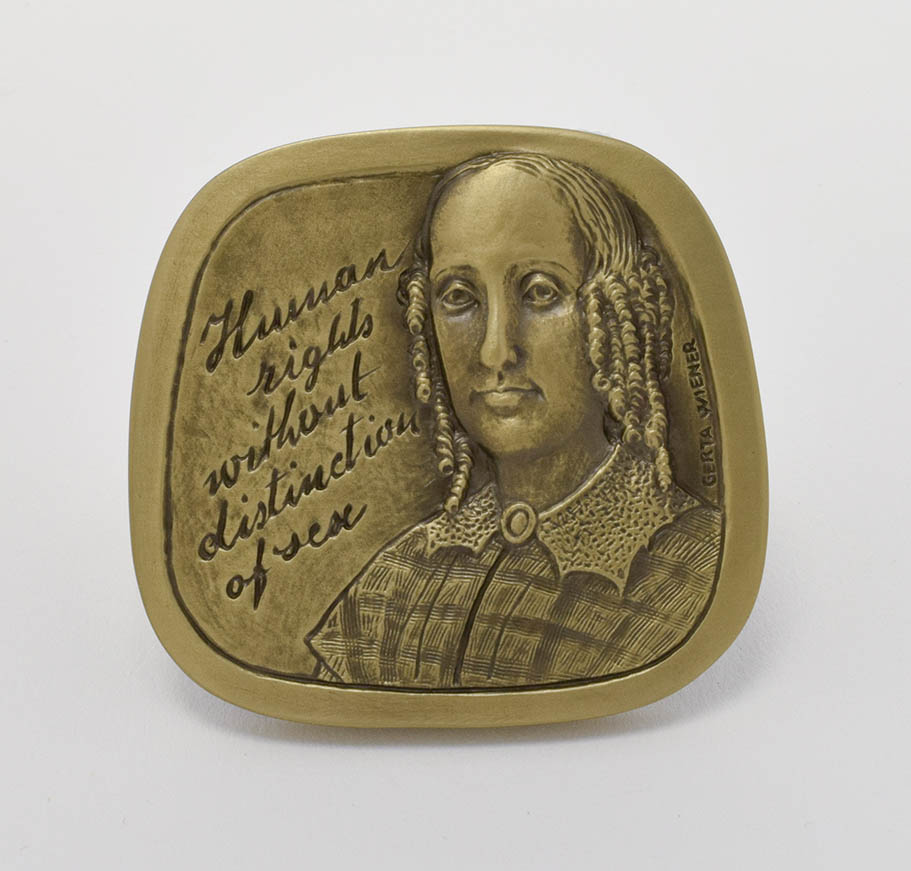Ernestine Rose (1810–1892)
Gerta Ries Wiener (Germany 1898-2000 New York)
USA, 1994
Bronze, h. 1 ¾ x w. 1 ¾ in.
Cincinnati Skirball Museum, Jewish-American Hall of Fame Collection, gift of Mel and Esther Wacks, Debra Wacks, and Shari Wacks, 2019.7.51
A self-described “rebel at the age of five,” Ernestine Louise Potowski was born in Piotkrow, Poland, to a rabbi and his wife, the daughter of a wealthy businessman. She would not agree to an arranged marriage at 16, and left home within a year, having rejected the idea that women were inferior to men and the Jewish texts and traditions that supported this belief. Her career as an advocate for social reform was launched in 1832 in England. In 1835 she married William Ella Rose, and the following year the couple settled in New York. In the United States, Rose’s speeches on religious freedom, public education, abolition, and women’s rights in New York and nearby states, the South and as far west as Michigan, earned her the title “Queen of the Platform.” Rose toured with Susan B. Anthony and worked closely with Elizabeth Cady Stanton, Lucretia Mott, Paulina Wright, Sojourner Truth, William Lloyd Garrison, and Frederick Douglass. Rose may have abandoned her Jewish religious practices, but she spoke out against anti-Semitism when the editor of the Boston Investigator attacked the Jewish people. After 15 years’ work, Rose secured New York legislation in 1869 that allowed married women to retain their own property and have equal guardianship of children. In a letter written in 1887, Ms. Rose summed up her life: “For over 50 years I have endeavored to promote the rights of humanity without distinction of sex, sect, party, country or color.”


